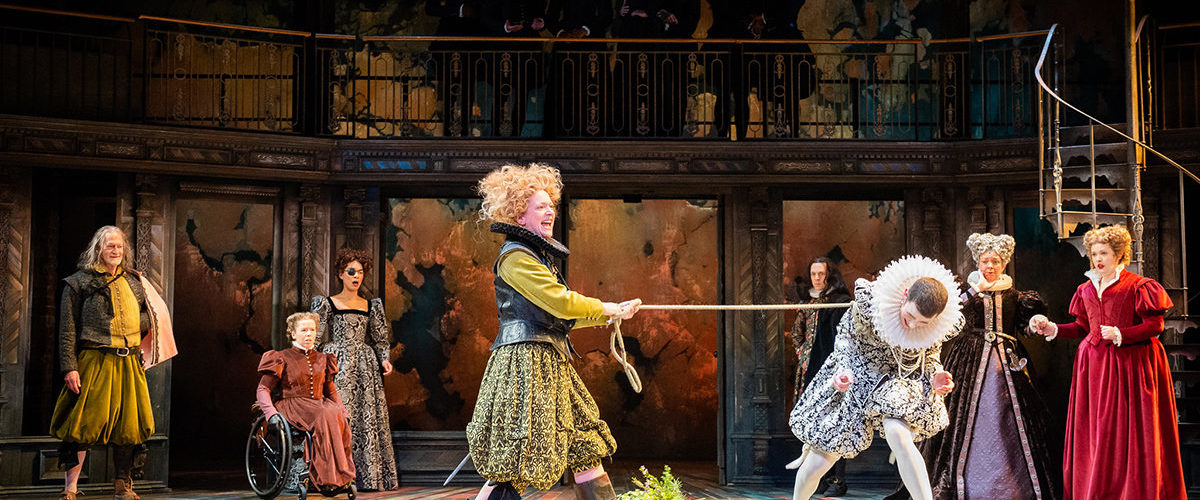Director Justin Audibert reimagines Shakespeare’s comedy ‘The Taming of the Shrew’, in a new production for the RSC where the women hold the power. He talks to Quays Life about playing with conventions to turn gender on its head.
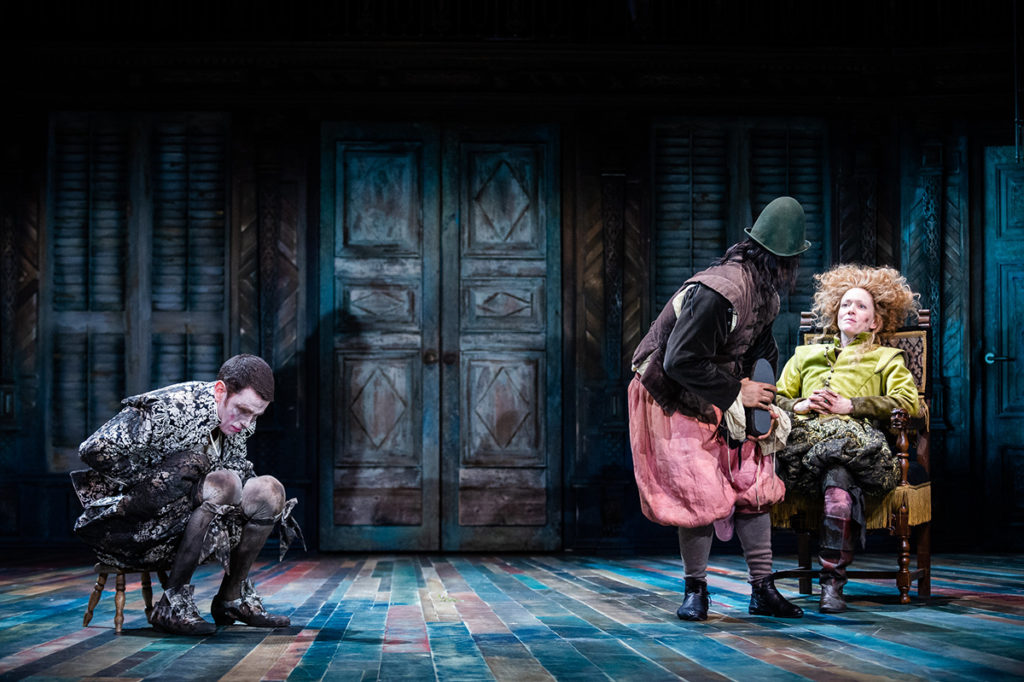
In your production key characters are re-imagined and played as the opposite binary gender, with no ambivalence and not ‘gender blind’. Is that right?
Justin: “Yes, so for example, the role of Petruchio, which we have renamed Petruchia, is being played by Claire Price as a woman in a woman’s costume but with the same character motivations and social status as Petruchio in any other production. Likewise, Katherine is being played by a male actor, Joseph Arkley, and he’s playing it as a man, and will be wearing a man’s costume, but will have the same social restrictions that a woman in 1590s England would have had. The actors are playing their own gender but we have flipped which gender holds power”.
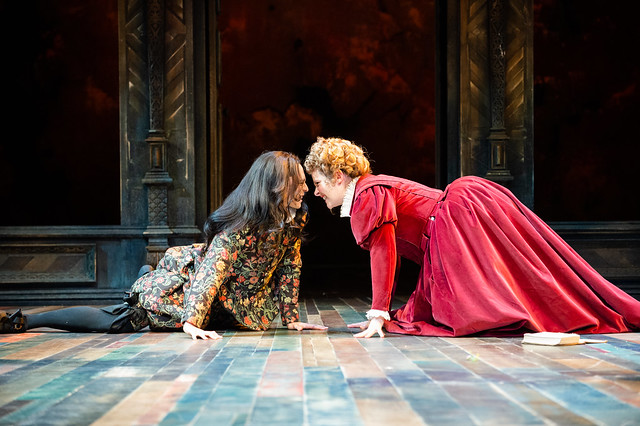
How did you come up with this idea?
Justin: “I was very inspired by the novel, The Power by Naomi Alderman. It’s set in a version of contemporary society, where women have the power to give electric shocks to men and bit by bit they become the dominant gender. By holding up this mirror to our contemporary society it forces you to confront how power is wielded in our world and who wields it.
“Shrew is Shakespeare’s second most performed play, which is incredible given its strongly anti-egalitarian ending in a traditional production, and that the title itself suggests that a woman is a ‘shrew’ and needs ‘taming’. At the moment there is an important conversation about gender and power and where that lies, and whenever you make any play or work of art of any kind, you’re always influenced by what’s going on around you. I don’t want to make another Shrew in the way it’s been done many times before. I am really interested in seeing what happens when you get female actors to play traditionally powerful male roles, and vice versa. During rehearsals it’s been fascinating to see how things feel when, for example, a mother sells off her two sons, as opposed to in the traditional retelling when a father sells off his two daughters. We are somehow not shocked by the traditional version but when we see a mother selling her sons off that feels transgressive.
“There have been many times when I’ve sat in a rehearsal room rehearsing Shakespeare or another classical text, and the weight of the room has been so male in its nature. It’s not that there aren’t brilliant roles in Shakespeare for women, but you still end up in a room that’s 60 – 70% male. I wanted to see what it would feel like when you flip that on its head, where the male voice is not the dominant one. I say this knowing that I’m the director, and I’m a man and I wield considerable power in that role, but still the weight of the room feels different, in a brilliant and creative way”.
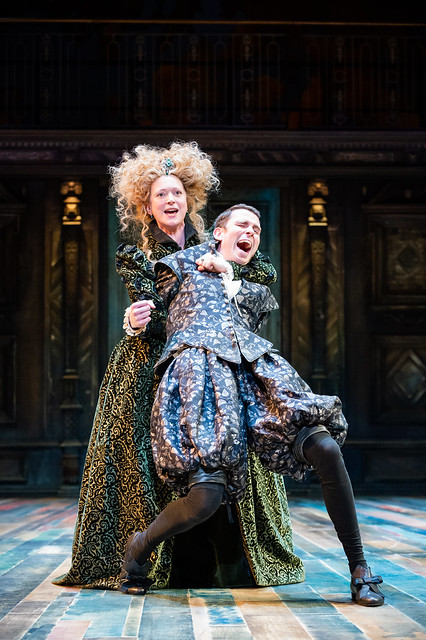
Can you tell us more about the setting for the production?
Justin: “I’m setting it in a reimagined 1590 in which England is a matriarchy. In the rehearsal room we’ve been exploring the different ways that women in a matriarchy would assert power.
“In Elizabethan England and Renaissance Europe more widely, eye contact was a huge thing. Women weren’t supposed to look you directly in the eye – but in the world we’re creating in the play the female actors are looking people directly in the eyes in a very bold way, and the male actors are not.
“Similarly, we’ve looked very carefully at how characters greet each other, how the women take the men’s hands, and kiss them and how that reads to a contemporary eye.
“Another thing we are exploring is how in most of Shakespeare’s plays, female virginity is prized above anything else, but it’s fascinating to see how that feels when it effectively becomes male virginity that is prized”.
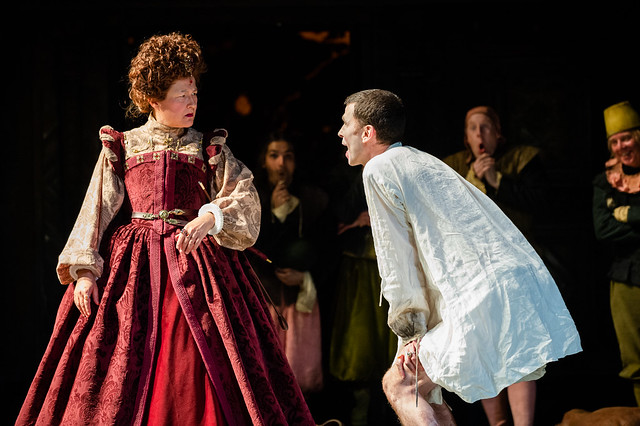
There are those who say what you’re doing with Shrew is thought-provoking, others would say it’s gimmicky? Do you have any sympathy with the idea that this is a gimmick?
Justin: “I understand why someone might think that, but I’d like to think that we as a company of 19 are going about this with a sense of intellectual curiosity and artistic enquiry. I think you have to come and see the show to make up your own mind. The fact that if you come the vast majority of the lines are going to be spoken by women in those iconic roles means the play is going to feel different to every other time you may have seen it.
“The late, great and much missed Cicely Berry from the RSC Voice Department has always been my guiding light. She said you have to make the play talk to now – and that’s what we are trying to do with this production”.
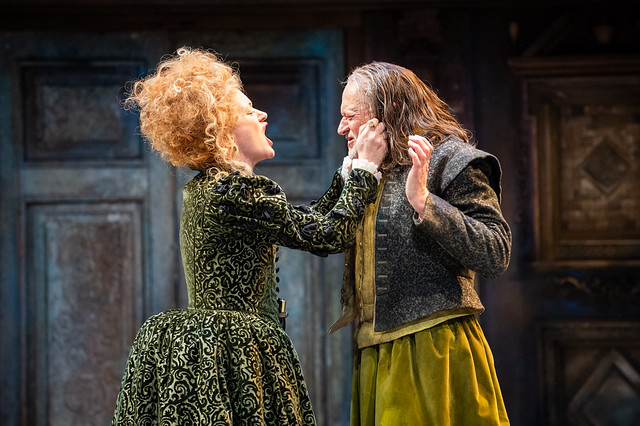
Can you tell us more about the set, music and costumes?
Justin: “The setting has a strong feel of the Mediterranean about it, with a colour palette that is warm, vibrant and with a sense of fun and mischief.
“The costumes will certainly give a sense of the 1590 period. The costumes worn by the female actors will be beautiful, imposing, expensive and involve lots of material. They will dominate the space. The costumes the male actors wear will be much more delicate even subtle.
“There will be a strong baroque feel to the music, fitting the 1590 setting. As the play goes on the music will change and become louder, more electric. I want strings with a big beat behind them, sort of like the Eurythmics, so the music will progressively have a strong 80s feel to it. We are calling it Rock Renaissance in the rehearsal room”.
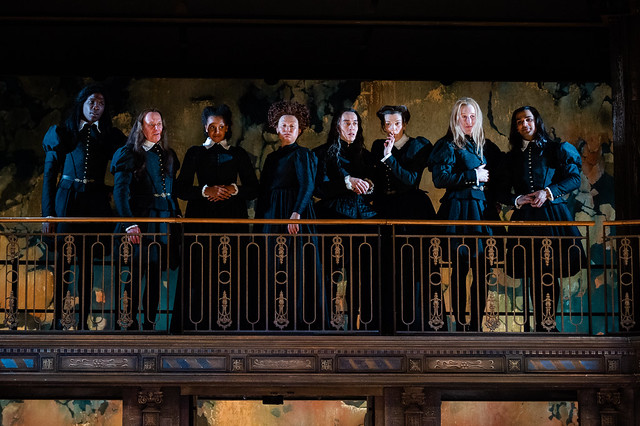
What do you think Shakespeare himself would think of what you’re doing with the play?
Justin: “I’m going to imagine he’s in literary heaven, and he’s seeing what’s happened on earth for the last 400 years. I think he’d probably be quite up for it. He’s a person of the theatre, someone who was into experimenting. His plays were never done the same way twice: he would change things, take things away, add things. I think he’d probably applaud the endeavour of trying to do something original with his play and then ultimately he’d judge us all on whether the production is any good or not!”
The Royal Shakespeare Company is touring to The Lowry, Salford from 25 September to 5 October 2019.

